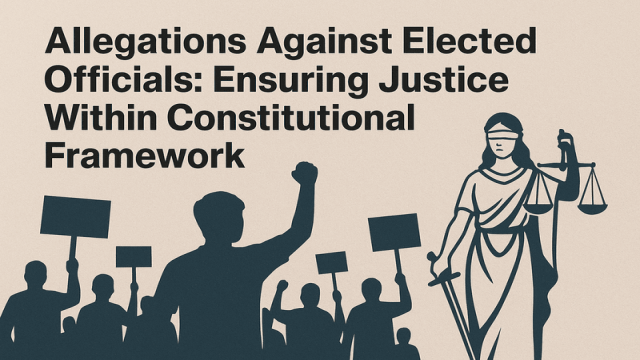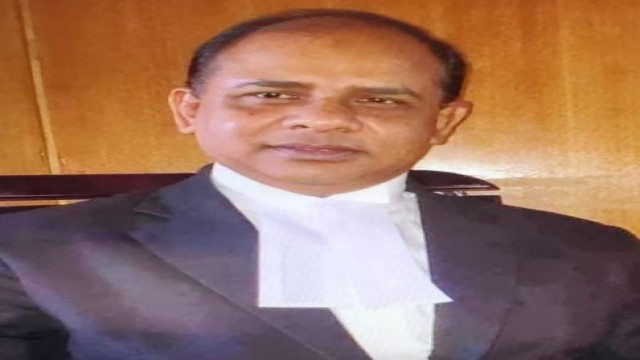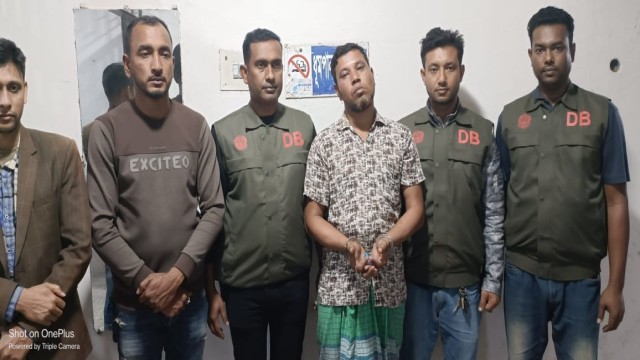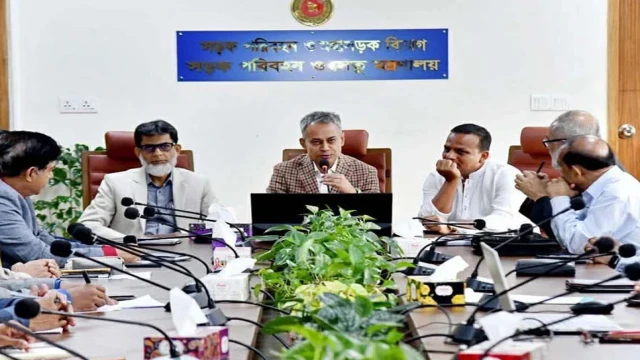Dhaka, Oct 24 (V7N) — Recent protests and human chain demonstrations across Bangladesh have raised various allegations against local elected representatives. Organized under the banners of “aware citizen society” and other civic organizations, these campaigns often demand punitive action or arrests against accused representatives. Social media, meanwhile, hosts lively debates both in support of and against such demands. Yet the fundamental question remains: does an allegation automatically render a public representative guilty?
Bangladesh’s Constitution provides a clear answer. As the supreme law of the land, it guarantees equal status and legal protection to every citizen. Under constitutional principles, no individual is considered guilty until proven so in a court of law. This is not merely a legal concept but a core foundation of the Bangladeshi state system.
Relevant Constitutional Analysis:
Article 11: Guarantee of Democracy and Human Rights
Bangladesh is established as a republic where participatory government functions based on fundamental human rights, the rule of law, and justice. The state bears the ethical responsibility to protect the freedom and dignity of its citizens. Spreading unproven allegations or generating artificial public outrage that harms someone’s social standing directly contradicts this principle. While not a criminal offense in itself, it reflects a societal and governmental ethical obligation.
Article 66: Qualification and Disqualification of Members of Parliament
A person cannot serve as a Member of Parliament if convicted of a punishable offense and sentenced to a minimum of two years in prison, until five years have elapsed after completing the sentence. Therefore, mere allegations are insufficient for disqualification; guilt must be formally proven through a judicial verdict.
Article 118: Structure and Independence of the Election Commission
The Constitution ensures the independence of the Election Commission, whose responsibility is to conduct free, fair, and impartial elections. Judicial decisions—not mere allegations—form the basis for determining the eligibility of candidates or representatives.
Article 122: Voter Eligibility
Every adult citizen of sound mind, not legally disqualified, is entitled to vote. Only upon a court’s verdict proving a disqualifying offense can an individual lose voting rights. Until then, the citizen’s rights remain intact, irrespective of ongoing investigations or allegations.
The Constitution recognizes the right to justice as a fundamental right. Allegations must undergo thorough investigation and judicial scrutiny. Premature punitive measures without court approval violate the principles of law.
State institutions are obliged to conduct impartial investigations and administrative action based on verified evidence, not political or public pressure. Citizens have the constitutional right to express their opinions, protest, and engage in civic activism. However, this freedom carries the responsibility to avoid defamation, threats, or social humiliation. Civic society should promote informed, evidence-based, and constructive critique that strengthens justice and truth.
In conclusion, Articles 11, 66, 118, and 122 clarify that no citizen is legally guilty until proven in court. Allegations alone do not establish culpability. Public authorities and civic society alike must respect constitutional procedures and legal boundaries. Upholding the balance between justice, constitutional rights, and human rights reinforces state dignity and democratic foundations.
The rule of law and adherence to judicial processes must guide society, ensuring fairness and equity for all, whether public representatives or ordinary citizens.
Written by – Teacher and Journalist
END/MRS/SMA/






























Comment: